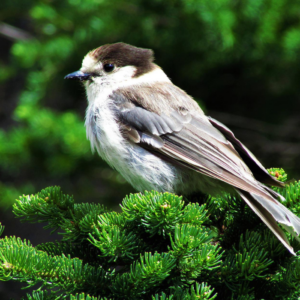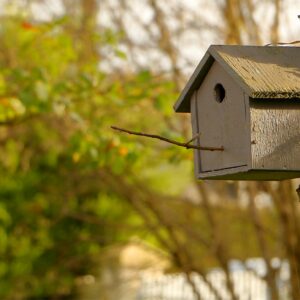Women for Nature Webinar: What Does It Take to Be a Woman Leader in the Conservation Sector?
“What does it take to be a woman leader in the conservation sector?” This was the central question of Women for Nature’s first community of practice webinar for 2021. Moderated by steering committee members Nora Livingstone and Janet Bax, the webinar invited three prominent environmental leaders to share their experiences.
The Panelists included:
- Meredith Brown, founding executive director for the Ottawa Riverkeeper
- Caroline Schultz, executive director of Ontario Nature
- Renata Woodward, CEO of Nature Trust New Brunswick
Our guest speakers were asked the following questions:
What advice would you give women thinking about entering the conservation sector?
Meridith Brown explained the importance of taking the initiative to dive right in. The field you start in may be vastly different from the one you end up in, everyone starts somewhere. Caroline Schultz echoed the sentiment and elaborated on the value of getting your foot in the door even within smaller organizations. While Renata Woodward advised any new leader to educate themselves on environmental issues, industry and policy as a first step.
What are the critical qualities needed to be an effective non-profit leader?
Renata mentioned the importance of people skills and perseverance. The work in nature conservation may never be done, but we must keep going and keep positive. Caroline Schultz added that in order to be an effective leader, empathy and compassion have to be front and center. Meredith Brown drew from her personal experiences and encouraged attendees to be bold and courageous as leaders.
What are some of the challenges you have faced as a woman leader and how did you overcome them?
“People working in our sector are predominantly women, particularly in the non-profit side, but leadership is male-dominated”, said Caroline. While acknowledging that the culture is shifting and more women are entering leadership roles in the environmental sector, Caroline noted that women often face double standards and additional scrutiny in the workplace. While recalling an incident during which she was ‘mansplained’ by a male coworker three times in one week, she mentioned feeling like she was expected to be ‘nicer’ and her male coworkers could be more direct.
Meredith shared her experience with hiring, how executive positions would always have a larger pool of male applicants whereas other postings would receive significantly more applications from women. She credits this to a tendency women have to sell themselves and their qualifications short and the importance of building confidence in oneself. Meredith also shared the challenges of having kids while being a woman leader and the importance of setting boundaries.
Renata reiterated the challenges mentioned by her co-panelists and added that if someone is treating you poorly, “put up a shield” stopping that conduct from continuing and be empowered to set boundaries.
How do you manage work-life balance?
Our panelists were candid about their struggle with finding balance and offered advice on what helped them.
Meredith Brown talked about nurturing a network and relationships outside of work who will be there to support you. Caroline Schultz noted that our work culture is changing. While overworking was once considered an honourable feat, we’ve seen a shift away from this as individuals and we’re now empowered to set boundaries. Renata Woodward mentioned that sometimes it can be impossible to separate work from our personal lives. Whenever this happens, leaders should work on building good habits like exercising and practicing mindfulness.
What was the hardest lesson to learn while running an environmental non-profit?
Renata shared the honest, sometimes bleak reality of being a conservationist: overall, the environment is losing. Caroline reflected on the challenges she faced in the governance of her organization. She cautioned leaders to step back and work slowly with an effective team to find the appropriate ways to deal with different issues. “You can’t always get people on board”, added Meredith. It’s important not to let that be disheartening.
All three panelists agreed on the importance of being self-advocates, being true to oneself and building a network.
What are your organizations doing to engage racialized and marginalized communities?
Meredith Brown explained that the Ottawa Riverkeeper is creating relations with the Algonquin Anishinaabe nations in the watershed.
Renata Woodward said that engaging marginalized communities is a broad initiative. The Nature Trust of New Brunswick is trying to be inclusive specifically by including Indigenous people in the management of their stewardship work on nature reserves. This was especially challenging due to the lack of laws in New Brunswick to guide how to go about this work. Renata says to start with yourself by making an effort to learn from and listen to racialized communities. Last but not least, she mentioned the importance of doing the work to make systemic changes within organizations while standing in solidarity with marginalized groups.
Caroline Schultz said Ontario Nature has programs to engage marginalized communities and newcomers. Her organization works with Indigenous colleagues to build relationships with Indigenous communities. For conservation to be impactful, it needs to have BIPOC representation.
A big thank you
We thank all of our panellists for their incredible insight and advice. We thank our wonderful moderators and audience participants. Watch the full webinar below or click here.
A special thanks to The Chawkers Foundation, the Government of Canada, Women for Nature donors, and Pollinate Networks for their kind support of this initiative and investment in young women leaders in Nature.



